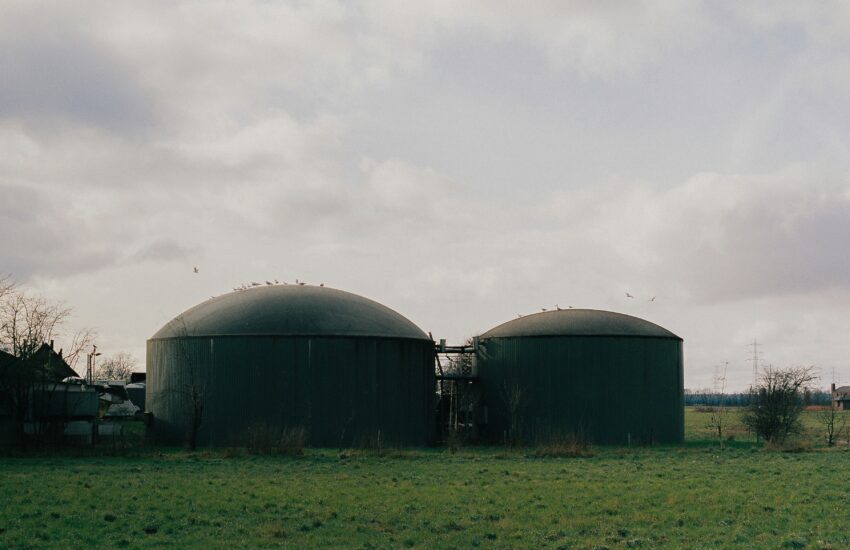From Firewood to Biogas: How Renewable Energy Fuels a Just Transition for Rural Communities
- Home
- From Firewood to Biogas: How Renewable Energy Fuels a Just Transition for Rural Communities

From Firewood to Biogas: How Renewable Energy
For millions of rural families, daily life still depends on firewood, charcoal, and coal. Cooking over smoky stoves is not just inconvenient—it comes with immense costs. Women and children spend countless hours collecting fuel, forests are stripped bare to meet energy demands, and entire communities are exposed to the harmful indoor air pollution that claims nearly 4 million lives every year.
This reliance on traditional fuels ties rural households to poverty while accelerating ecological collapse. Yet change is possible and it starts with renewable energy solutions that empower people and protect the planet. Through the GREAT initiative, biodigesters and other locally appropriate clean energy systems are creating a pathway from dependency on firewood to a regenerative future powered by biogas.
Why Energy Access Is Key to a Just Transition
Energy is more than a household utility; it underpins development itself. Without clean and affordable energy, families remain locked in cycles of drudgery. Forest ecosystems suffer from overharvesting, food systems depend on unsustainable practices, and opportunities for women and youth remain deeply constrained.
A just transition means ensuring that the move to a green economy improves and not undermines lives at the bottom of the pyramid. It is not enough to replace fossil fuels at the global level; rural communities must be able to access and benefit from this transition in ways that enhance prosperity, justice, and dignity.
That is where renewable energy innovations like biodigesters play a vital role.
What Biodigesters Bring to Rural Communities
Biodigesters transform organic waste like crop residues, livestock manure, and household scraps into renewable energy in the form of biogas. This simple but powerful technology brings multiple benefits:
- Cleaner Cooking: Families cook with smokeless biogas stoves instead of inhaling toxic fumes from coal or firewood.
- Healthier Homes: Indoor air pollution drops dramatically, reducing respiratory illnesses that disproportionately affect women and children.
- Thicker Forests: With less demand for fuelwood, forests remain standing, protecting biodiversity and carbon stocks.
- Natural Fertilizer: Byproducts of biodigestion can be used as organic fertilizer, improving soil health and boosting crop resilience.
- Circular Economy: Waste is no longer a burden, it becomes a valuable input for energy and agriculture.
For communities long burdened by resource scarcity, this shift is transformative. Clean energy doesn’t just improve health and convenience, it restructures livelihoods, regenerates ecosystems, and unlocks financial opportunities through carbon markets.
Women and Youth at the Center
One of the most profound impacts of clean energy is its ability to redistribute time, labor, and opportunity. In many rural areas, women are the primary gatherers of firewood. This task consumes hours each week, often at the expense of education, income-generating activities, or childcare. By replacing firewood with biogas, women gain back their time and take on new roles in leadership, entrepreneurship, and community decision-making.
Youth, too, benefit from these shifts, finding opportunities to engage in training, maintenance, and governance of renewable energy systems. Instead of being forced to migrate to urban centers for work, young people can participate in building thriving, regenerative economies in their own communities.
Through the GREAT initiative, women and youth are not just beneficiaries—they are recognized as core leaders of energy access projects. This people-led governance ensures that systems are designed to meet real needs and that benefits are distributed fairly across households.
Biogas and Carbon Finance
The transition from firewood to biogas also contributes to measurable reductions in greenhouse gas emissions. These outcomes generate carbon credits that can be sold in global markets, creating new revenue streams for rural households.
This mechanism is critical. Instead of relying on subsidies or grants, communities can sustain their renewable energy systems through carbon finance. Revenue flows directly to those contributing to climate-positive outcomes, reinforcing the principle of dignity and ownership. Families are no longer passive recipients of aid but active participants in a global regenerative economy.
Scaling Up: A Pathway to Prosperity
The potential for renewable energy access in rural communities is immense. By combining biogas technologies with regenerative agriculture, agroforestry, and waste-to-value systems, the GREAT initiative provides a comprehensive model for building prosperity from the ground up.
- Households save money previously spent on coal, charcoal, or kerosene.
- Ecosystems regenerate as forests are protected from fuelwood harvesting.
- Health outcomes improve, lowering medical costs and increasing productivity.
- Carbon markets provide long-term income, connecting rural families to a trillion-dollar opportunity.
Already, more than 1.2 million farmers are part of this growing movement, demonstrating that the model works and can scale to reach tens of millions more over the next decade.
Redefining Energy, Redefining Prosperity
The shift from firewood to biogas is not only a technical change—it is a cultural and economic transformation. It redefines what energy means for rural households: not a daily struggle for scarce resources, but a reliable foundation for dignity, resilience, and prosperity.
In this vision, prosperity is measured not only in income but in restored forests, healthier families, empowered women, and communities that are active contributors to global climate solutions. Renewable energy becomes more than a service—it becomes the backbone of a just transition.
Conclusion
Clean cooking and renewable energy access are not side stories in the fight against climate change, they are central to building a just, regenerative future. By moving from firewood to biogas, rural communities can reduce emissions, restore ecosystems, and unlock new opportunities for growth.
The GREAT initiative proves that renewable energy is not just about technology, it is about justice, empowerment, and resilience. The just transition will not be realized until rural farmers are no longer left behind, but instead are given the tools, resources, and recognition they need to lead. And thanks to solutions like biogas, that transition is already under way.



